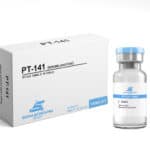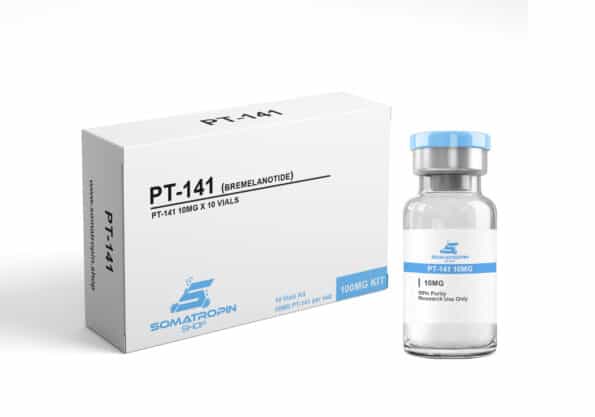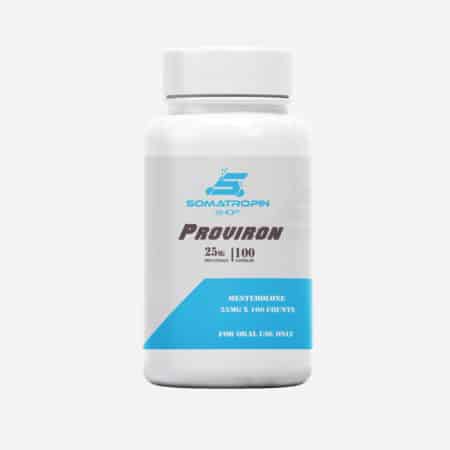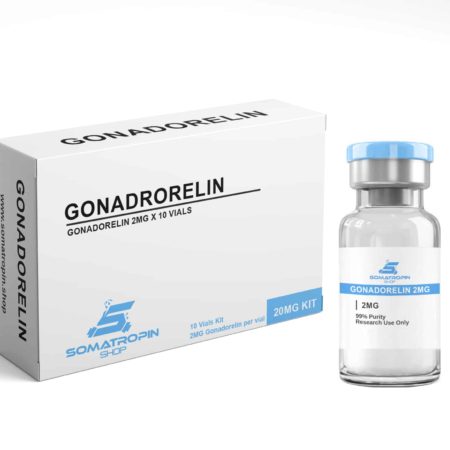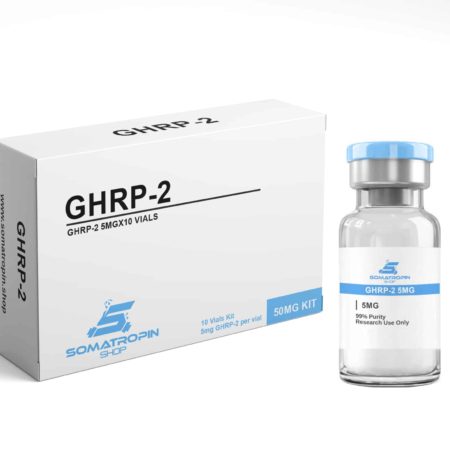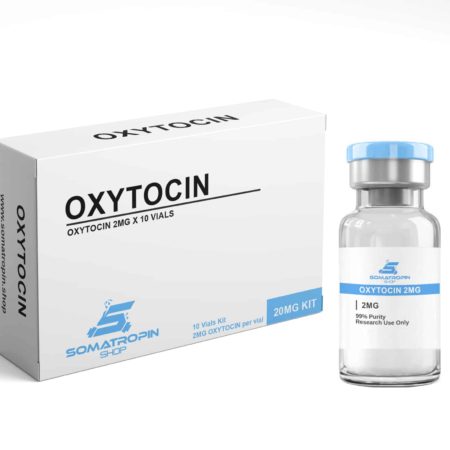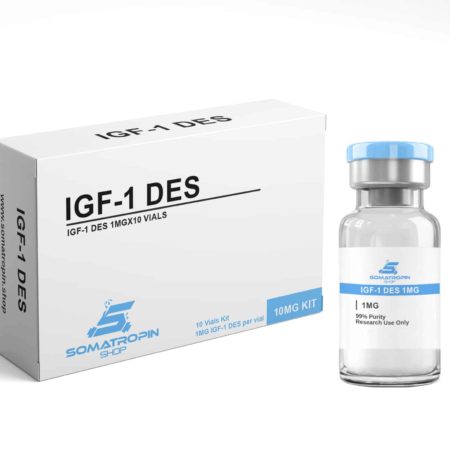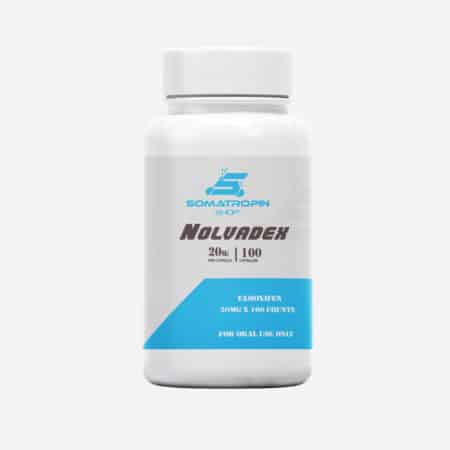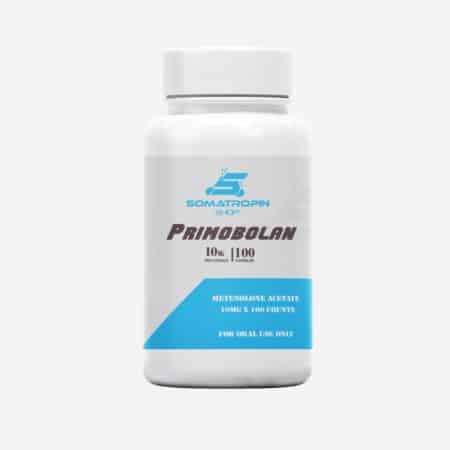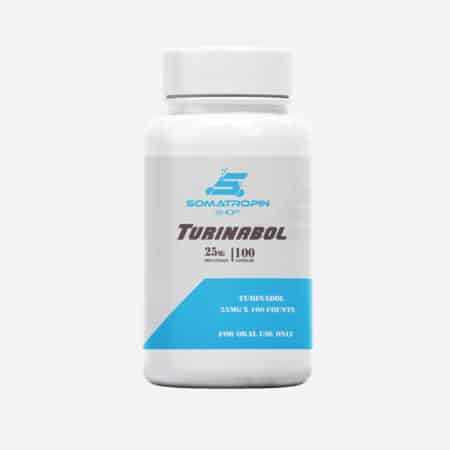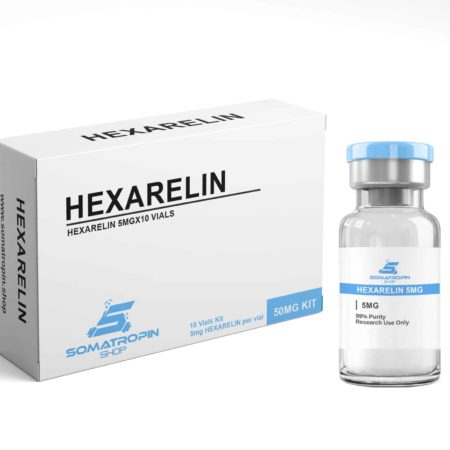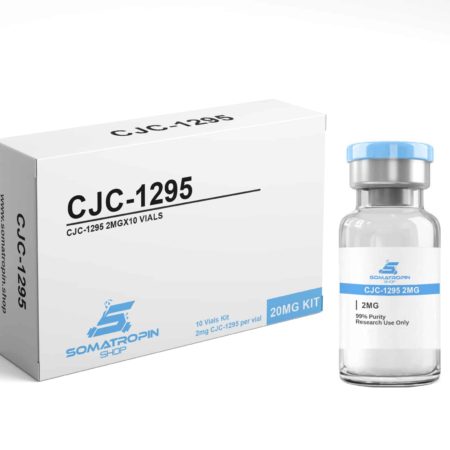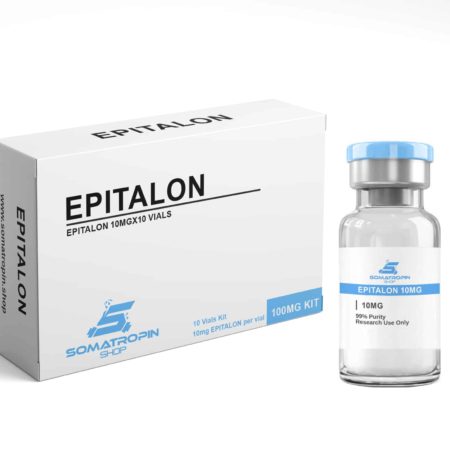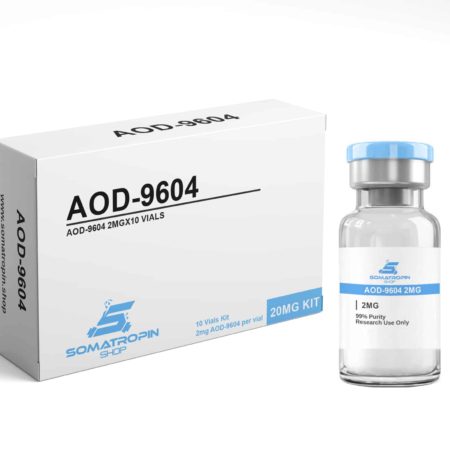PT-141 (Bremelanotide)
$149 – $249
PT-141, also called Bremelanotide (generic clinical name), is a heavily modified synthetic derivative of alpha-melanocyte-stimulating hormone. It has been tested in clinical trials as a treatment for both male/female hypoactive sexual desire disorder and acute hemorrhage. PT-141 is an agonist for the melanocortin-4 and melanocortin-1 receptors. Research shows that it promotes sexual arousal and stimulates the immune system.
All Peptides are shipped non labeled
What is PT-141 (Bremelanotide)?
PT-141, also called bremelanotide, is sometimes referred to as the female Viagra because the peptide was previously investigated in phase IIb human clinical trials for use in treating female hypoactive sexual desire disorder (HSDD). PT-141 is a melanocortin that binds primarily to melanocortin 4 receptor (MC-4R) and MC-1R. In 2009, PT-141 was also investigated as a treatment for acute hemorrhage. PT-141 is a derivative of another synthetic melanocortin,
Structure
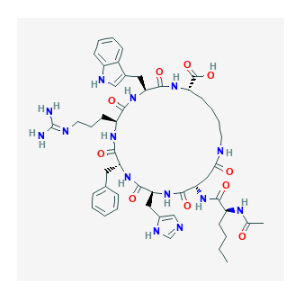
Sequence: Ac-Nle-Asp(1)-His-D-Phe-Arg-Trp-Lys(1)
Molecular Weight: 1025.182 g/ml
PubChem CID: 9941379
CAS Number: 189691-06-3
Source: PubChem
PT-141 Research
Sexual Arousal
PT-141 is a unique peptide in that it stimulates the MC-4R, which is known to produce sexual arousal in the central nervous system and influence sexual behavior. Studies in mice have shown that agonist binding to MC-4R causes sexual arousal and increased copulation in both males and females. Because PT-141 works via a different mechanism than drugs like Viagra, it is possible to treat sexual arousal disorders in both men and women that stem from causes other than reduced blood flow to the genitals.
A study of men with erectile dysfunction (ED) who did not respond to sildenafil (Viagra) found that roughly one third experienced adequate erection for sexual intercourse with PT-141 (administered via nasal spray). There was also a strong dose-dependent response in the trial, indicating that PT-141 (Bremelanotide) is indeed effective in certain cases. This suggests that PT-141 could offer insight into correcting ED in settings where sildenafil has failed and may offer insight into central causes of hypoactive sexual desire.
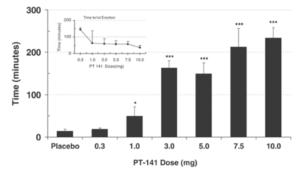
Interestingly, PT-141 was pulled from clinical trials before it reached approval for use in women suffering from HSDD. This is despite signs that the drug increased the number of satisfying sexual events per month and decreased female sexual distress scores in a statistically significant manner without any substantial side effects. Many experts who treat female sexual dysfunction (FSD) were dismayed to find the peptide was not being advanced despite positive results. They point to a lack of established endpoints for trials of FSD and socio-cultural biases against women’s sexual health as the primary roadblocks that are inhibiting approval of what they see as much-needed therapies. They hope that greater attention will be given to the topic and that the FDA will establish more concrete guidelines for evaluating therapies like PT-141 that can offer benefit. These experts also expressed dismay that the pharmacological treatments were not tested in conjunction with other established means of treating sexual dysfunction as they believe that the combination may prove synergistic and that peptides like PT-141 may be useful for overcoming initial barriers and jump-starting psychological treatment modalities.
In 2017, partly in response to the outcry against the cessation of earlier trials, Phase II Reconnect trials were launched using subcutaneous injections of PT-141 for FSD. The newest version of PT-141, called Rekynda, may soon be available for use in the United States. It would be legal to use PT-141 off-label, at that point, to treat both male and female sexual dysfunction. These new trials have relied on the kind of modified endpoints that experts in FSD have touted as beneficial to seeing these kinds of treatments approved.
Hemorrhage
In 2009, PT-141 (Bremelanotide) was modified slightly and investigated as a potential treatment for hemorrhagic shock. Because it binds to both MC-1R and MC-4R, it reduces ischemia and protects tissues against inadequate blood supply in the setting of hypovolemic (hemorrhagic) shock. The drug, when administered intravenously, does not produce substantial side effects. It was last in phase IIb trials. The modified version of PT-141 is referred to as PL-6983.
PT-141 (Bremelanotide) and Infection
The MC-1R has been found, in a rat model of a specific fungal infection, to possess important anti-fungal and anti-inflammatory properties. This is of particular importance because current anti-fungals are limited in terms of their mechanism of action and all produce serious and treatment-limiting side effects in certain patients. Having an alternative to use in the treatment of fungal infections could reduce morbidity and mortality substantially, especially in patients with immune compromise.
PT-141 (Bremelanotide) and Cancer
The MC-1R receptor is an important stimulus of DNA repair pathways and thus is of interest in cancer treatment and prevention. Research shows that people with variants of MC-1R are at increased risk for both basal cell and squamous cell carcinoma. Altered it may be able to correct the problems experienced as a result of these variants and prevent or treat these cancers.
Research Directions
Right now, PT-141 (Bremelanotide) has received widespread and intense attention as a treatment for sexual dysfunction. There is, however, a great deal of potential research outside of sexual dysfunction and hemorrhage that PT-141 could be applied to. For instance, MC-4R is well-known to be defective or missing in certain cases of obesity and may account for as much as 6% of all cases of early-onset obesity. PT-141 offers a unique means of exploring this particular cause of obesity and potentially illustrating a pathway for intervention. MC-1R plays roles in both pain and inflammation as well as kidney pathology and the spread of infection. There is a plethora of available research that it could help to shed light on.
| Dosage | 20mg (2mg x 10 Vials), 50mg (5mg x 10 Vials), 100mg (10mg x 10 Vials) |
|---|
Related Products
Gonadorelin is a gonadotropin releasing hormone agonist that has shown benefit in the treatment of infertility and hypogonadism. Recent research suggests that gonadorelin may be useful in slowing the growth of breast and prostate cancer. Studies also show promise in the treatment of Alzheimer’s disease.
20mg Kit
2mg X 10 Vials
All Peptides are shipped non labeled
All Peptides are shipped non labeled
Oxytocin, a natural protein hormone, plays important roles in sexual reproduction, childbirth, bonding between mother and child during breast feeding and wound healing. New research suggests that it may boost cognitive performance, reduce cardiovascular risk, and offset the effects of diabetes.
20mg Kit
2mg x 10 vials
All Peptides are shipped non labeled
IGF-1 DES is a truncated, natural version (splice variant) of insulin-like growth factor-1. Naturally found in the brain, breast milk, and uterine tissue, IGF-1 DES stimulates hypertrophy and hyperplasia of a number of different cell lines. Research has shown this version of the protein to be more potent than standard IGF-1, mostly as a result of its enhanced bioavailability. Currently, researchers are looking at ways to utilize IGF-1 DES in the treatment of inflammatory bowel disease (IBD), autism, and a variety of neurological conditions. Research shows that it helps to maintain the health of synaptic connections in the central nervous system and, like all IGF-1, promotes the repair of muscle and connective tissue.
10mg Kit
1mg X 10 Vials
All Peptides are shipped non labeled
Product packaging may change from time to time
Out of stock
Hexarelin is a synthetic analogue of ghrelin that shows benefit in heart disease and cardiac ischemia, protecting the heart following heart attack. Research has shown that Hexarelin also protects skeletal muscle against wasting and improves cholesterol and triglyceride levels.
All Peptides are shipped non labeled
CJC-1295 No DAC is a truncated peptide analogue of growth hormone releasing hormone (GHRH). First developed in the 1980s, research studies with modGRF have shown it to improve muscle repair and growth, accelerate wound healing, strengthen bones, increase fat burning, and improve metabolism. It may also have beneficial effects on blood sugar regulation and the immune system.
All Peptides are shipped non labeled
Epithalon (Epitalon) is a synthetic derivative of Epithalamin and a potential modulator of telomerase, the enzyme that maintains and protects the telomere caps at the ends of chromosomes (strands of DNA). Research suggests that Epithalon induces telomere elongation and may fight off the effects of aging as a result.
All Peptides are shipped non labeled
AOD-9604 is a modified version of the hGH fragment 176-191 peptide (contains a di-sulfide bridge) and thus a derivative of human growth hormone (hGH). Originally developed as a lipolytic (fat burning) compound, AOD9604 has shown benefit in studies of heart disease, osteoarthritis/cartilage repair, and metabolic syndrome. AOD9604 stimulates lipolysis (the breakdown or destruction of fat) and inhibits lipogenesis in animal studies.
All Peptides are shipped non labeled
Categories
Tags
- 100iu
- anti aging
- anti wrinkles
- bioregulator
- bioregulators
- Bodybuilding
- cjc
- cjc 1295
- cjc1295
- cycle
- fat loss
- genotropin
- gh
- ghrp
- gnrh
- hgh
- human growth
- human growth hormone
- hygetropin
- igf
- igf-1
- ipamorelin
- jenotropin
- kingotropin
- kit
- mgf
- nordictropin
- norditropin
- orals
- pct
- peptide
- peptides
- primo
- Primobolan
- roids
- selank
- semaglutide
- somatropin
- Stanozolol
- steroid
- steroids
- Tesamorelin
- testosterone
- Tirzepatide
- Winstrol

